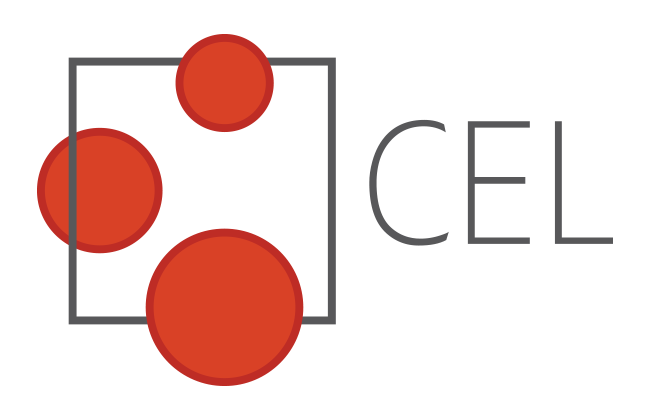I am as disgusted as most of you are to hear and read unsustainable fake orations about building and leading successful teams! I am even more disgusted when these orations are supported by people that obviously do not recognize the value of a team nor do they really believe in the power it can incarnate. Nice, well-decorated lies to comply with fashionable trends!

But is “team”-aspect just a fashionable trend? Well, no, as I sustain below, but IT IS undoubtedly an incumbent characteristic of a “good” leader. So, the confusion goes on in cases where mediocre leaders are found to extendedly support “team – wording” just in order to prove adequate for their positions. Fortunately, this is not enough. The old saying “walk the talk” is valid here, too. Unless you daily practice a team-attitude you cannot speak about team-spirit!
By experience, by opinion and mainly by deep respect of the value of a team, I would distinguish the following 12 characteristics as those really identifying a GREAT TEAM:
- Vision is clear
People need to know WHERE you want to go, in fact where they’re going. They need to agree with it, embrace it, be ready to fight hard for it. People will not run for no-direction. The test is quite simple: ask the members of a team to tell you “how they envision their team and themselves in some years”. If you receive answers that vary too much, if you face differentiation of personal to team future, then you’re just in front of a bunch of people gathered by coincidence; that’s not a team!
Question: Do team members have a clear vision to follow?
2. Goal is common
Vision broken into smaller pieces makes goals. Goals need to be the same for ALL in order to have significant probabilities to be realized. Sub-goals need to be complementary and lead to the ONE and ONLY common goal. If goals of different team members are conflicting, then again this is not a team!
Question: Do team members share the same goal(s)?
3. Effort is unanimous
Great teams cannot afford two-speed contributors. They all have to try hard; they all have to be devoted to the one and only aggregated common goal consistently and constructively.
Question: Do team members allocate the same amount of effort to realize their common goal?
4. Knowledge is shared not just obtained
During the operation of a team, members get to know each other, create new knowledge, share good practices, learn from mistakes. Knowledge creation will happen anyway; knowledge sharing is what constitutes a GREAT TEAM.
Question: Do team members normally exchange knowledge and experiences gained and/or held?

5. Tough tasks are welcome; easy tasks are disdained
People are not afraid to undertake difficult tasks. In fact, they love tough missions because they are passionate about the challenge. Easily managed tasks are for mediocre teams not for great ones!
Question: Are team members willing to take over tricky assignments?
6. New crazy ideas are discussed
Respect is the utmost quality of a GREAT team. Each one can contribute (even a crazy idea). All ideas are evaluated and discussed; none is disregarded before further examined. The objectively best ones are kept. No hard feelings arise. Of course, this presupposes a high level of personal maturity.
Question: Is the team climate open to new – not necessarily conventional -ideas?
7. Inspiration is not “leader-only” driven
Each one encourages the others. Each one acts as THE incentive for the others to try harder. GREAT TEAMS do not need a talented leader; GREAT TEAMS need commonly accepted rules and practices set by mature people, and most of all, they need a moving purpose to fight for.
Question: Do team members feel motivated by each other?
8. People complement each other; they do not compete with each other
Unanimous agreement, matching opinions, identical attitudes are NOT characteristics of a GREAT team; they are traits of an obedient herd. Ideas expand and businesses evolve only if there exist a variety of aspects to be taken into consideration. DO appoint different culture, background, expertise people in order to formulate a GREAT TEAM.
Question: Are team members different to each other in terms of skills, experiences, culture and character?

9. People feel proud to be/become members of this team
Pride is an indispensable facet of our purpose in life. Can you imagine yourself having a purpose that does not make you proud? Probably not. How can you work for a team that does not make you proud then? People need to see a “bigger” picture beyond what takes place “today” in order to “bind themselves” into a team.
Question: Do people present strong positive feelings about their team?
10. Lessons learnt (out of failure) are very important
Fail, fail and fail! Celebrate failure! Learn from failure! Get acquainted with failure! Take advantage of failure! This is the only way for a team to become smarter and then … GREAT.
Question: Do people recognize and discuss mistakes instructively within the team?
11. Efficiency is measured on innovative holistic implementation
Acting without realizing “before” and “after” is never resourceful. Team members need to know “why” they do something, and they absolutely deserve to know “what” new they have achieved as a whole further to the limited outcome of their personal work. The better they understand and the wider they envision the more efficiently they cooperate.
Question: Are people accountable for the aggregated outcome?
12. At the end of the day, each team member becomes better
The final and very important trait of a GREAT TEAM is the impact of the team itself on each one of the team members. Does every member of the team get improved as a professional, as a person, as a contributor? If yes, then that’s a GREAT TEAM!
Question: Is there a comprehensible personal development effect?
Ask yourself the above 12 questions to understand whether you have worked for a GREAT TEAM, whether you are now working for a GREAT TEAM or whether you are currently building a GREAT TEAM!
Answer sincerely and take action accordingly. A GREAT TEAM can only result to GREATER PEOPLE!
I really appreciate the fact that you are reading my post. I regularly write about (mainly) business issues I have encountered and I think it would be useful to share with you. I am currently exploring new business (and life) trends. If you would like to read previous posts of mine, just visit my LinkedIn profile. If you would like to be informed on my future posts, please click “Follow” at the top of the page. Thank you.
I can be reached for speaking engagements, lectures, or other “sharing operational knowledge” challenges at the following email: marica.labrou@gmail.com

